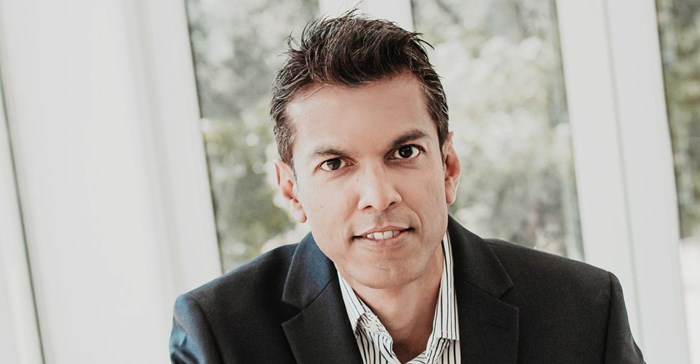
Source: Supplied. Avsharn Bachoo is the group chief technology director at Afrocentric Group.
The sheer pace and diversity of change triggers an unstoppable dream like paralysed state where we float within the rapids in a direction we may not understand. As of the year 2024, technology will be changing everything roughly once every 24 hours.
We may think of 2024 as an anomaly, but these conditions for accelerating change have been building up for years. Advancements in artificial intelligence (AI) and interconnectivity has created a new reality where change in health technology is much more rapid, continual, and ubiquitous.
Shroom boom!
Psilocybin is a hallucinogenic chemical found in certain mushrooms known as shrooms (or magic mushrooms). Psilocybin has been found to be the most synergic chemical to work with our brain's serotonin receptors that controls our “feel good” hormones. The US Food and Drug Administration (FDA) has described psilocybin as a breakthrough medicine after clinical trials have shown that it can more effectively treat depression than regular anti-depression medicine.
The trials have included psilocybin as a treatment for headaches, anxiety, anorexia, mental-health issues and various forms of substance abuse. Traditional clinical trials for this type of medicine typically takes up to 10 years to complete. However, the use of cutting-edge AI algorithms rapidly accelerated the isolation of the specific beneficial psilocybin chemical compounds to target.
AI further predicted the side effects by analysing patterns within the vast amounts of data generated by the trials that would have been difficult or impossible to detect using traditional methods. Australia has already passed legislation to recognise the medicinal qualities of psilocybin in 2023, whereas global shroom legalisation is the next big trend for 2024 after the mainstream recognition of cannabis.
AnxietyTok?
Adoption of TikTok has surpassed Instagram, Snapchat and Facebook. Its AI algorithm is exceptionally good at zoning in on user interests, and for many users its mental health and their personal experience with it. Mental health professionals have also leveraged the platform to reach a wider audience using amusing videos with pop music and dances to answer questions about stress, trauma and therapy.
While social media can often be a misleading platform, studies show that the pros of discussing mental-health awareness outweigh potential negatives. Case-studies show that individuals struggling alone were able to find comfort in knowing that others have similar experiences. This connection is crucial for groups of people where mental illness is seldom spoken about or thought of as taboo.
2024 will see an explosion of TikTok therapy. It will further see more medical-health professionals establishing social-media accounts as subject-matter experts to educate and build their businesses. Unfortunately, 2024 will also see more fraudster “therapists” creating accounts and amassing followers, taking advantage of users, leading to increased misinformation about mental health.
A balance between information and privacy
AI uses algorithms and models to find patterns in large amounts of data, and then reuses those patterns in new data to make predictions. The power of AI resides in data. With the rapid penetration of AI into the health industry, the use of sensitive patient data in AI has become controversial. Concerns on privacy, data protection, confidentiality and trust have been raised, whereas global privacy laws have been tightened.
Synthetic data is data that has been created artificially through computer simulation as an alternative or supplement to real patient data. It helps health companies overcome the above challenges by providing the data needed for AI while protecting patient privacy.
Synthetic data will democratise access to other health transformative AI applications that have been impeded by privacy concerns, making innovations in healthcare practically limitless.
It will lead to faster development of treatments and interventions and create data for under-studied populations where data collection is difficult or ethically problematic.
One of the world's most respected medical journals, The Lancet has recognised synthetic data and stated “it can serve as a method of protecting patient privacy and enhancing clinical research without jeopardising a patient’s medical records”. Gartner has predicted that 80% of data used in AI will be synthetic in 2024.
Personality tests
People are unique, and this uniqueness is reflected in their personality traits. These traits can influence various aspects of our lives. Personality tests such as ‘Myers-Briggs’ and ‘Big Five’ have been used to help clarify clinical diagnosis, guide therapeutic interventions, screen job candidates or help predict how people may respond in different situations since the 1970s.
The intersection of AI and social media has led to the emergence of a new personality test. By analysing various aspects of a person’s social-media activities, from the words they use to their engagement with content, personality traits can be analysed and predicated. The use of basic social-media data, such as profile information, number of "likes", number of friends, or frequency of status updates, can predict levels of extraversion, openness, and conscientiousness.
As artificial intelligence technology continues to advance, it offers new opportunities to generate precise data about people's behaviours and preferences. In turn, these insights can provide a more accurate picture of an individual's personality.
The application of personality computation in mental health allows for early detection and intervention or predicting certain tendencies. It's worth noting that psychologists and recruiters often inconsistently browse patients or prospective candidate social-media profiles. 2024 will see more formal and widespread adoption of using social-media traits in decision making.
Mom, can I spend my money?
Pre-authorisation is an administrative process by which patients obtain advance approval from their medical aid before a specific procedure is conducted by their doctor to qualify for payment coverage. Pre-authorisation can include hospital admission, medical procedures or specific medications.
Patients often describe the pre-authorisation process as antiquated, time consuming, unnecessary and labour-intensive as they have to submit detailed documentation and clinical justifications to their medical aid.
Ripe for disruption, 2024 will see AI decisioning replacing manual pre-authorisations. AI will rapidly analyse information from multiple sources such as a patient’s medical-aid plan cover, medical history, electronic health records and medical protocols.
It will help identify the medical necessity of a procedure, suggest alternatives and assess cost effectiveness. AI will identify and fill in missing or incorrect data (such as wrong procedure codes) and will learn from past cases to improve accuracy over time.
Patterns of fraud and abuse will be further flagged. AI pre-authorisation platforms launched by tech giants such as Google and AWS, as well as several start-ups are rapidly gaining traction across the world, giving patients real-time approvals and faster access to treatments that they are ultimately paying for in membership fees.
Near-fiction
We're standing on the cusp of a profound shift in our relationship with technology. From the realm of near-fiction to the germ of an idea to actual science, the future is already here, with technology innovation accelerating at an unprecedented scale.
It sounds fictitious, but it’s already happening. Not only is this change transforming the way we live and work - it's redefining our very understanding of what it means to be human. These technology trends are transforming and shaping the health industry before our very eyes.
























